Kevin Killian’s SUMMER READS
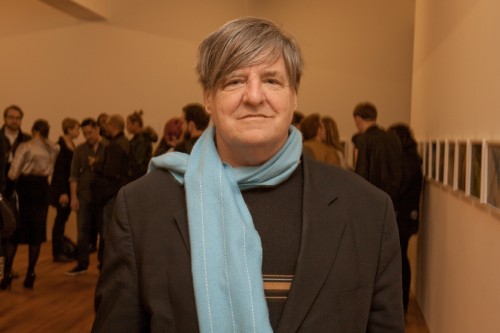
Photo Credit: Daniel Nicoletta
Kevin Killan’s summer reading picks:
***
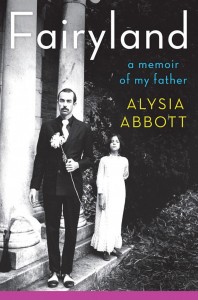 While waiting for Dodie Bellamy’s Cunt Norton to appear from Les Figues later on this summer, I’ll recommend a few books I know are already out. Fairyland, by Alysia Abbott (Norton) is the memoir of a young woman who grew up in the Haight-Ashbury, the only child of a single gay dad, and what happens when AIDS comes in to blow up her fragile world once again. Steve Abbott was a talented poet, thinker, novelist—and the man who coined the expression “New Narrative,”—one of my very first friends here in San Francisco. He’d be proud of the way his beloved and beautiful daughter has returned him to the world he left.
While waiting for Dodie Bellamy’s Cunt Norton to appear from Les Figues later on this summer, I’ll recommend a few books I know are already out. Fairyland, by Alysia Abbott (Norton) is the memoir of a young woman who grew up in the Haight-Ashbury, the only child of a single gay dad, and what happens when AIDS comes in to blow up her fragile world once again. Steve Abbott was a talented poet, thinker, novelist—and the man who coined the expression “New Narrative,”—one of my very first friends here in San Francisco. He’d be proud of the way his beloved and beautiful daughter has returned him to the world he left.
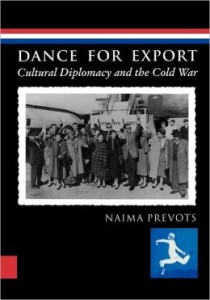 I’ve been reading Dance for Export: Cultural Diplomacy and the Cold War with much pleasure this weekend and last. In recent years I’ve come to understand generally that the Cold War of my youth impacted just about everything in culture too, as well as ideology, and that the US government secretly poured zillions of dollars into a propaganda game against the Russians to convince the world that, say, US abstract art was better than old-fashioned social realism. Naima Prevotz’ dance history brings us unto the Betlway and Manhattan boardrooms where specialized panels met to debate which US dance troupes were worthy of international exposure (Martha Graham, Jose Limon), and which were too avant-garde (Alwin Nikolais) or too politically suspect (Katherine Dunham). In general the US has always been eager to show the rest of the world what nice guys we are, and what great artists, and you know, for years I believed it. Now I see it’s all been a charade of spy vs spy, money vs. money.
I’ve been reading Dance for Export: Cultural Diplomacy and the Cold War with much pleasure this weekend and last. In recent years I’ve come to understand generally that the Cold War of my youth impacted just about everything in culture too, as well as ideology, and that the US government secretly poured zillions of dollars into a propaganda game against the Russians to convince the world that, say, US abstract art was better than old-fashioned social realism. Naima Prevotz’ dance history brings us unto the Betlway and Manhattan boardrooms where specialized panels met to debate which US dance troupes were worthy of international exposure (Martha Graham, Jose Limon), and which were too avant-garde (Alwin Nikolais) or too politically suspect (Katherine Dunham). In general the US has always been eager to show the rest of the world what nice guys we are, and what great artists, and you know, for years I believed it. Now I see it’s all been a charade of spy vs spy, money vs. money.
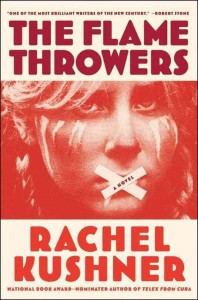 Some of this general background plays out in Rachel Kushner’s new novel The Flame Throwers—a book that needs no introduction from me but a stunning one nevertheless. I’m one who loved Telex from Cuba and have resented the years that have limped on by while I’ve been slavering for a new Kushner novel! Now here it is and I’m still in awe. Her novel of a woman driven by speed and curiosity to flout transnational borders in the service of avant-garde art reminds me so much of one of my old favorites, Joan Didion’s Play It As It Lays. But it’s as if there where a Joan Didion who knew about art instead of finding it, like all modern practices, ridiculous and appalling.
Some of this general background plays out in Rachel Kushner’s new novel The Flame Throwers—a book that needs no introduction from me but a stunning one nevertheless. I’m one who loved Telex from Cuba and have resented the years that have limped on by while I’ve been slavering for a new Kushner novel! Now here it is and I’m still in awe. Her novel of a woman driven by speed and curiosity to flout transnational borders in the service of avant-garde art reminds me so much of one of my old favorites, Joan Didion’s Play It As It Lays. But it’s as if there where a Joan Didion who knew about art instead of finding it, like all modern practices, ridiculous and appalling.
June 13th, 2013 / 11:05 am
Amina Cain’s SUMMER READS

Amina Cain’s summer reading recommendations:
***
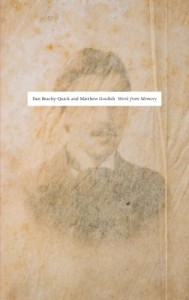 Work from Memory by Dan Beachy-Quick and Matthew Goulish (Ahsahta Press, 2012)
Work from Memory by Dan Beachy-Quick and Matthew Goulish (Ahsahta Press, 2012)
My first three recommendations are books I myself plan to read this summer (and you should too!) and this one is at the top of my list. Work from Memory is in response to In Search of Lost Time by Marcel Proust, and Goulish is a performer whose work with Goat Island I’ve loved as much as any of my favorite books and those performances have taught me as much about writing as reading has. I’m also fond of Dan Beachy-Quick’s work because of what feels to me like a deep calmness within it. I can only imagine the territory the two of them cross into here.
 Murder by Danielle Collobert, trans. Nathanaël (Litmus, 2013)
Murder by Danielle Collobert, trans. Nathanaël (Litmus, 2013)
This is a short novel I’ve been waiting for all year, dedicated reader of Danielle Collobert (and Nathanaël) that I am. Another title by Collobert, It Then, is one of the most brutal books I’ve ever encountered, performative in its brutality and fragmented in a way that is more elegant than I thought fragments could be. Murder was written during the Algerian war and originally published by Éditions Gallimard in 1964, and from what I can tell, looks closely at the severity of human existence.
READ MORE >
June 12th, 2013 / 11:00 am
Johannes Göransson’s SUMMER READS
Johannes Göransson shares what’s he’s reading this summer:
***
This summer I’m reading:
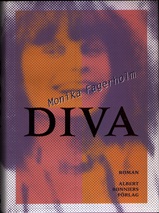 Monika Fagerholm’s novel Diva: It’s a novel about this girl Diva who does some crazy stuff, but it’s also about a whole cast of characters, such as TruthMary and her sister Kari. Kari loses the ability to speak so she tries to re-learn it by listening to recordings of herself saying basic sentences, which Diva hears through the wall (they’re neighbors). And her hair grows really long so she lets it out and the neighborhood boys climb up on it. Years later Kari lights herself on fire in a telephone booth. The book is written in this incredibly cyclical style, where the same story gets told over and over, slowly revealing more and more details. I don’t think this book has been translated, but some of her more comprehensible books have been translated: American Girl and Glitter Scene. I’m going to read those too.
Monika Fagerholm’s novel Diva: It’s a novel about this girl Diva who does some crazy stuff, but it’s also about a whole cast of characters, such as TruthMary and her sister Kari. Kari loses the ability to speak so she tries to re-learn it by listening to recordings of herself saying basic sentences, which Diva hears through the wall (they’re neighbors). And her hair grows really long so she lets it out and the neighborhood boys climb up on it. Years later Kari lights herself on fire in a telephone booth. The book is written in this incredibly cyclical style, where the same story gets told over and over, slowly revealing more and more details. I don’t think this book has been translated, but some of her more comprehensible books have been translated: American Girl and Glitter Scene. I’m going to read those too.
Diva is one of the key texts in Maria Margareta Osterholm’s critical book, Ett Flicklaboratorium i Valda Bitar (A Girl Laboratory in Selected Pieces), which explores the figure and aesthetics of the girl as it pertained to Swedish literature. Osterholm also introduced the term “Gurlesque” to Swedish culture, and this term has generated a lot of discussion in the newspapers and has helped draw attention to some of the best young Swedish writers, such as Aylin Bloch Boynukisa and Sara Tuss Efrik. So I’m going to read this book.
June 11th, 2013 / 11:00 am
Brian Evenson’s SUMMER READS
Brian Evenson on his summer reading…
***
First of all, if this is the third summer that you’ve convinced yourself that this summer that this summer you’re really going to read Infinite Jest instead of just pretending to read it, it’s time to burn the book. The first summer it really could have happened. Last summer, even, it could have happened, but by this time the jest is on you. You’re better off reading:
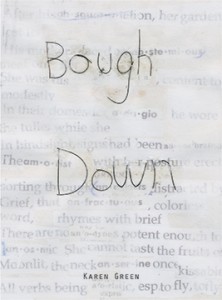 Bough Down by Karen Green (Siglio Press)
Bough Down by Karen Green (Siglio Press)
Her moving, powerful and haunting book about her husband Wallace’s suicide and its aftermath.
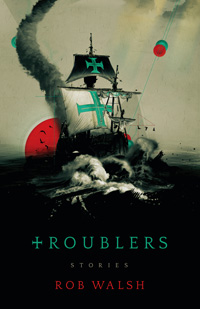 Troublers by Rob Walsh (Caketrain)
Troublers by Rob Walsh (Caketrain)
This is one of the strongest, funniest, and oddest story collections I’ve read lately, the kind of book to give you faith in the form again. Well worth the attention.
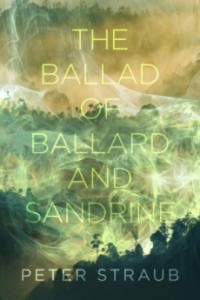 The Ballad of Ballard and Sandrine by Peter Straub (Subterranean Press)
The Ballad of Ballard and Sandrine by Peter Straub (Subterranean Press)
This is a sharp and strange little novella. If you can’t find the Subterranean Press edition, it’s $2.99 for Kindle or in Issue 56 of Conjunctions.
June 10th, 2013 / 11:05 am
Will Alexander’s SUMMER READS
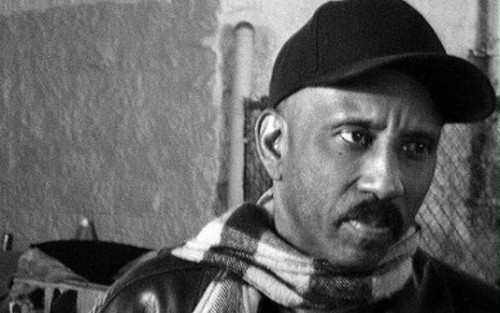
Poet Will Alexander’s summer reads:
***
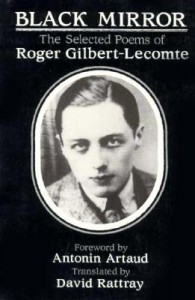 Black Mirror: The Selected Poems of Roger Gilbert-Lecomte, by Roger Gilbert-Lecomte, Trans. David Rattray (Station Hill Press, 1991)
Black Mirror: The Selected Poems of Roger Gilbert-Lecomte, by Roger Gilbert-Lecomte, Trans. David Rattray (Station Hill Press, 1991)
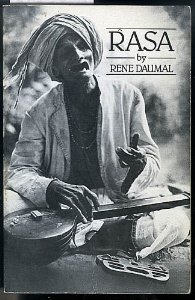 Rasa, by Rene Daumal (Norton, 1982)
Rasa, by Rene Daumal (Norton, 1982)
June 7th, 2013 / 11:05 am
Sueyeun Juliette Lee’s SUMMER READS
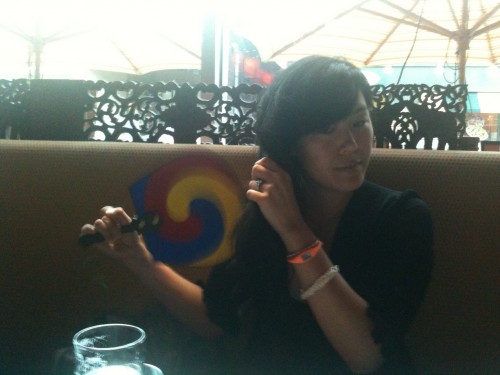
Today Sueyeun Juliette Lee shares some of her summer reads:
***
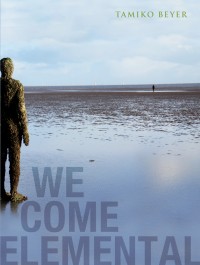 We Come Elemental by Tamiko Beyer (Alice James Books, 2013)
We Come Elemental by Tamiko Beyer (Alice James Books, 2013)
I’m very excited about this text. A queer ecopoetical exploration of landscape and being, of bodies and transformations all set in relation. I’m very interested in these ideas, in how we collaborate with our environments…how our bodies are practices set loose among a landscape that is constantly being iterated with us.
I think Tamiko is a FREAKING GREAT poet and someone I’ve had my eyes on for a while. She actually once submitted a short manuscript for Corollary, and it got snatched up elsewhere!! That’s what happens when I move at glacial speed. Sigh. But I’m super excited her work is getting more attention. She’s a major player!!!
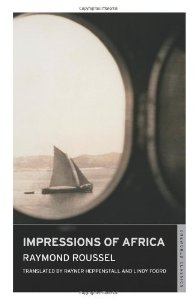
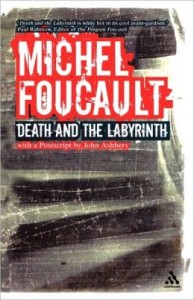 Impressions of Africa by Raymond Roussel and Death and the Labryinth by Michel Foucault
Impressions of Africa by Raymond Roussel and Death and the Labryinth by Michel Foucault
An old friend of mine used to LOVE Roussel. I resisted reading him for a long time, and I’ve dipped in and out, but I’m ready to make a little study. I’m stymied by the fact that I don’t read/speak French, and I think to really appreciate all of Roussel’s language games, you have to have a nuanced understanding of French syntax and vocabulary. That said, I think the dissonance in reading Roussel in English will still be of interest, and having Foucault’s study of Roussel’s writing strategies can help illuminate some of the conceptual parameters and frameworks Roussel was working in.
I’m not someone who uses much language “play,” per se in my work, but it’s something I’m of course very interested in. What writer isn’t?!?! Some of my friends and former classmates write this way–I’m thinking of Lawrence Giffin and Steve Zultanski. And they do it so elegantly–with wit, irreverence, but also devastation there, too. A quick plug–Zultanski’s Agony (BookThug) and Giffin’s Christian Name (Ugly Duckling) are AWESOME and so devastating in their own ways. I was surprised by the depth of feeling these works actually evoked in me.
READ MORE >
June 6th, 2013 / 11:00 am
Joe Milazzo’s SUMMER READS
Summer reading picks from Joe Milazzo:
***
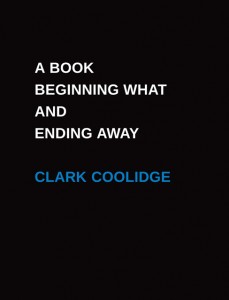 A Book Beginning What and Ending Away by Clark Coolidge (Fence Books, 2013)
A Book Beginning What and Ending Away by Clark Coolidge (Fence Books, 2013)
Partly out of excitement to have this work restored to print; Coolidge is neither understood nor celebrated enough as a prosodist, or, if you prefer, prose thinker, à la Stein (I know this mostly from his writings on jazz / improvised music); the book itself just long and packed / impacted enough to occupy a season.
Randomly selected excerpt: “Door only to be taken in. Mingles into the corner as it comes. Enough, and green, and by and large, were familiar.”
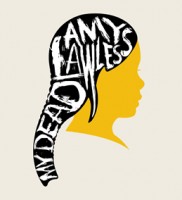 My Dead by Amy Lawless (Octopus, 2013)
My Dead by Amy Lawless (Octopus, 2013)
Have you seen the table of contents? The volume opens with 8 individual poems, all entitled “One Way to Write a Sonnet Is To Number the Lines.” This appeals to me, and aligns with my own formal / lyrical interests.
Randomly selected excerpt: “Night is ugly as all the other shit / I just mentioned”
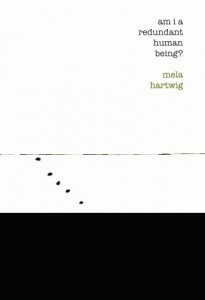 Am I A Redundant Human Being? by Mela Hartwig (Dalkey Archive, 2010)
Am I A Redundant Human Being? by Mela Hartwig (Dalkey Archive, 2010)
I picked this up at the open of the year courtesy Dalkey’s annual sale, but have not yet been able to see if the book itself satisfies the expectations (high-ish… is this Madame Bovary without the self-delusion, an early negation of the novel [an imitation of Arthur Schnitzler tangenting itself into anticipations of Tao Lin], or a Modernist self-help manual?) I have for it based on the title.
Randomly selected excerpt: “Of course, his obvious attraction flattered me. But, then again, maybe it didn’t.”
June 5th, 2013 / 11:00 am
Debra Di Blasi’s SUMMER READS
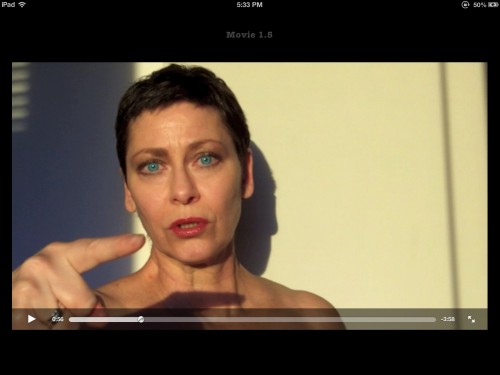
Debra Di Blasi’s summer reading recommendations:
***
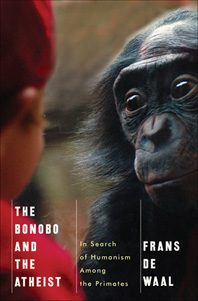 The Bonobo and the Atheist: In Search of Humanism Among the Primates, by Frans De Waal (Norton, 2013)
The Bonobo and the Atheist: In Search of Humanism Among the Primates, by Frans De Waal (Norton, 2013)
The most recent book by hands-on primatologist de Waal once again successfully argues that the study of primatology is not how apes behave like humans, but how humans behave like apes.
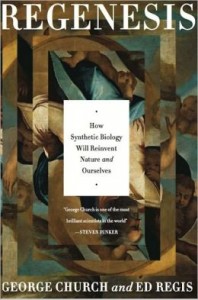 Regenesis: How Synthetic Biology Will Reinvent Nature and Ourselves, by George Church and Ed Regis (Basic Books, 2012)
Regenesis: How Synthetic Biology Will Reinvent Nature and Ourselves, by George Church and Ed Regis (Basic Books, 2012)
Predicts how current and future biological research will lead to transhumanism, genetic regeneration and mutation, and living products that reproduce and redesign themselves. The eugenics potential would make Adolf Hitler proud.
READ MORE >
June 4th, 2013 / 11:00 am
Michael J Seidlinger’s SUMMER READS
SUMMER READS: Starting today and over the course of the next couple weeks, I’ll be posting some summer reading recommendations by various writers.
I asked the writers to recommend a few books for summer reading, or to talk about some books they’re particularly looking forward to delving into this summer.
First up, some great picks from Michael J Seidlinger:
***
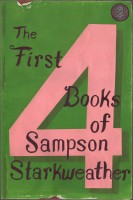 The First Four Books of Sampson Starkweather by Sampson Starkweather (Birds LLC, 2013)
The First Four Books of Sampson Starkweather by Sampson Starkweather (Birds LLC, 2013)
I only recently discovered this guy’s poetry and I am truly kicking myself for it. His poems weave together humor and pop culture references. The book is 328 pages of I-have-no-idea-what-to-expect but if it’s anything like what I’ve read at Typo Magazine and other journals, there’s a lot of good in this three hundred page book.
And that name. Mannnnnnn… now I’m in the mood for a good film noir. Someone recommend me a good film noir.
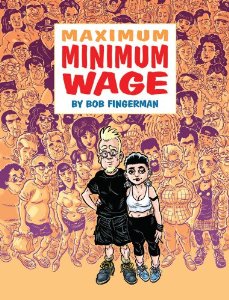 Maximum Minimum Wage by Bob Fingerman (Image Comics, 2013)
Maximum Minimum Wage by Bob Fingerman (Image Comics, 2013)
Seemingly people have more time to read in the summer but, for me, I tend to find that the opposite is true. Therefore you’ve got to love the existence of graphic novels. Much like a movie, the average graphic novel only asks the reader for an hour or two.
With Fingerman’s “Maximum Minimum Wage,” we see through the eyes of Rob Hoffman, a cartoonist working on smut rags to pay the bills, as he, alongside his girlfriend, Sylvia, go about the apathy of their oddly relatable lives. It looks like Fingerman’s series channels other comix writers like Daniel Clowes and Brian Wood. During the heated summer months, I tend to go for narratives that point at the bleakness of modern life with a lot of sarcasm and, as the back cover blurb states, “cringe humor.”
June 3rd, 2013 / 11:00 am
Where You Are Is Where This Library Goes: The Mellow Pages guide to starting a user-sourced library/reading room
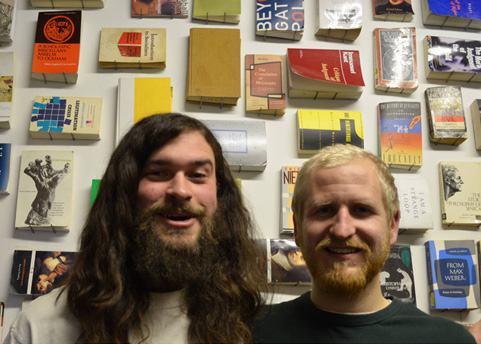 So in case you don’t shake the rain out of your New York Times or anything, let me introduce Mellow Pages to you.
So in case you don’t shake the rain out of your New York Times or anything, let me introduce Mellow Pages to you.
Mellow Pages is a sweet new community-sourced library, reading room, and gathering spot for readers/writers, started by two gnarly beardboys from the Pacific Northwest—Matt Nelson and Jacob Perkins, at left—in a chill and genius way.
You can find it on Tumblr and Facebook and Goodreads and Instagram. Mellow Pages lives on Bogart St. off the Morgan L stop in Brooklyn, NY, but that shouldn’t stop you from letting its idea live everywhere.
Because what Jacob and Matt have done is written up a guide (Jacob writing, Matt editing) to making your own very 2013 library/reading room wherever you might live.
Ever since I heard about Mellow Pages, I’ve felt impressed not only by its duh-that’s-a-great-idea quality, but also by how cleanly and smartly and warmly Matt and Jacob have executed their idea. They’ve provided a non-academic space where readers can stroll in and sample all that weird shit they read about on the internet in a tangible, welcoming, human, affordable way. A curated library and reading room offers a model that doesn’t sub out public libraries or independent bookstores but instead supplements and supports them; the guide talks/thinks more about this relationship between bookstores/libraries/etc. What I want to say is that Mellow Pages’ living room gallery/house show/come-one-come-all/zine culture vibe really appeals to me and feels consistent with what I think of as independent literature’s better angels.

The walls of Mellow Pages are speckled with portrait-style books facing cover-out, all donated by patrons/presses/authors and handpicked for display; the atmosphere has nice couches and coffee; it’s small enough that you can’t be a timid shypants but cozy enough that you don’t feel spooked. And it has an elegant Goodreads-based system for keeping track of what they have, what they want, and where all the donations have come from.
 So of course when I asked Matt and Jacob if they felt like writing up a guide to “mellow paging,” they were like: “We don’t call it that because that sounds dumb, Mike, and actually, wouldn’t you know it, we just wrote up a really comprehensive guide for our friends in Portland and our friends at Paper Darts in Minneapolis.” They are that on the ball, Matt and Jacob are. The ball is mossy and you can eat it for emergency lunch. So HTMLGIANT is very happy to share this guide with you on behalf of Mellow Pages. You can find it in full at this public Google Document: Where You Are Is Where This Library Goes.
So of course when I asked Matt and Jacob if they felt like writing up a guide to “mellow paging,” they were like: “We don’t call it that because that sounds dumb, Mike, and actually, wouldn’t you know it, we just wrote up a really comprehensive guide for our friends in Portland and our friends at Paper Darts in Minneapolis.” They are that on the ball, Matt and Jacob are. The ball is mossy and you can eat it for emergency lunch. So HTMLGIANT is very happy to share this guide with you on behalf of Mellow Pages. You can find it in full at this public Google Document: Where You Are Is Where This Library Goes.
I’m not joking when I say it’s comprehensive. If you’re feeling energetic and wishing your town had a Mellow Pages-style spot, and you feel like you could do it but you’re not sure how, this guide will seriously put you in a well-what-are-you-waiting-for position. The guide covers space acquisition, funding, building/designing your library, dealing with the internet, acquiring books, checkout and membership models, sanity maintenance, events, and community interaction. Download this guide, print it out, get together with your friends, make shit happen.
- —> Go to Google Docs for the FULL AND MOST READABLE AND CONSTANTLY UPDATED VERSION OF THE GUIDE
- —> Below the jump you will find A SHORTENED HTMLGIANT EXCLUSIVE MAY 26th EDITION of the guide with a bunch of pictures I added from the Mellow Pages Facebook feed.
- —> I repeat: FULL AND MOST READABLE/SHARABLE GUIDE ON GOOGLE DOCS /// FACEBOOK PICTURES AND HIGHLIGHTS BELOW THE JUMP
May 26th, 2013 / 3:35 pm
